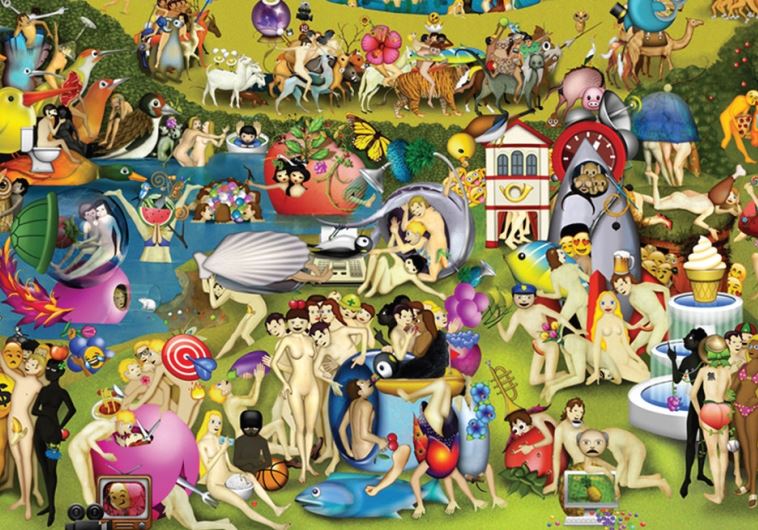What’s your pleasure?
Holon’s Print Screen Festival provides plenty of food for thought – on the way we consume, have sex, sleep and dream.
 ‘Garden of Emoji Delights,’ in a wink at Hieronymus Bosch’s ‘Garden of Earthly Delights.’(photo credit: CARL GANNIS)
‘Garden of Emoji Delights,’ in a wink at Hieronymus Bosch’s ‘Garden of Earthly Delights.’(photo credit: CARL GANNIS)